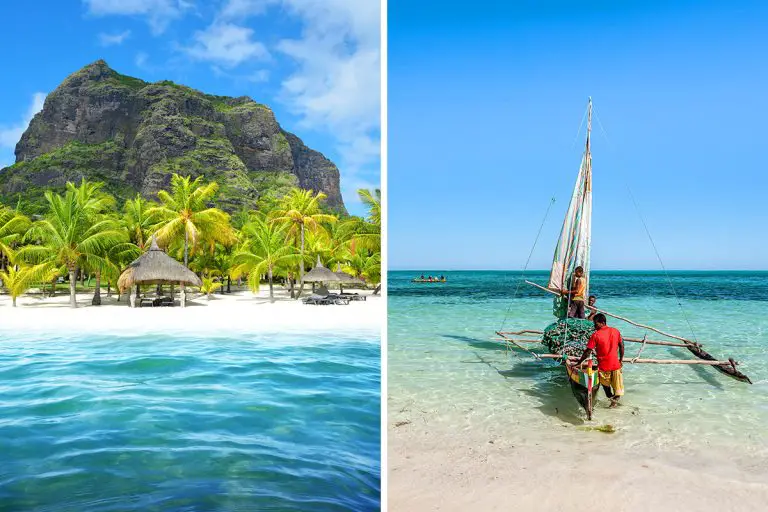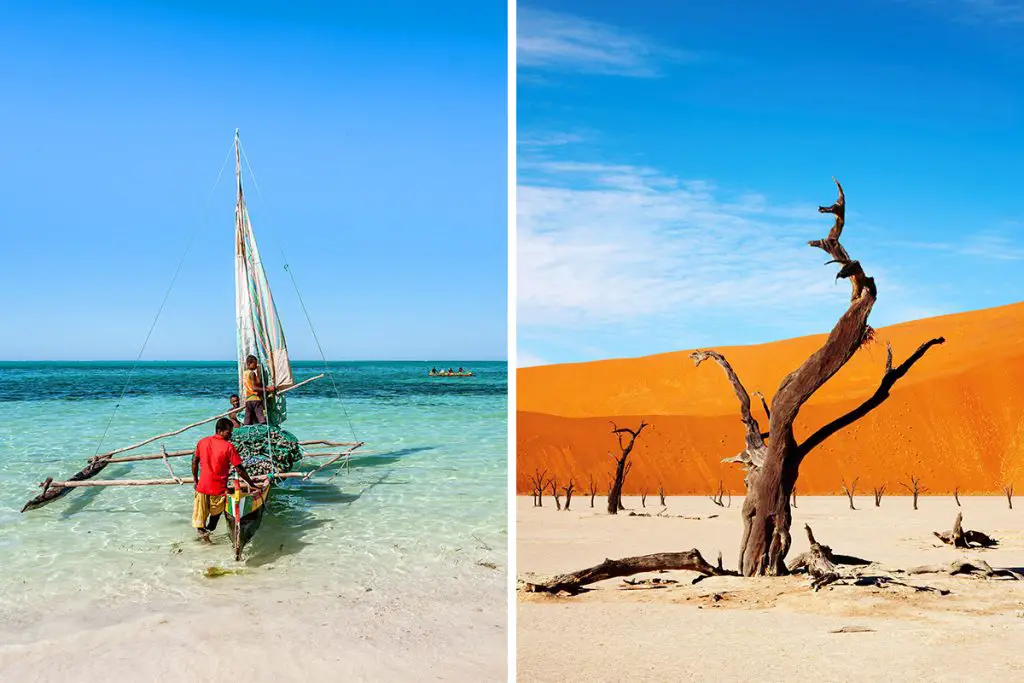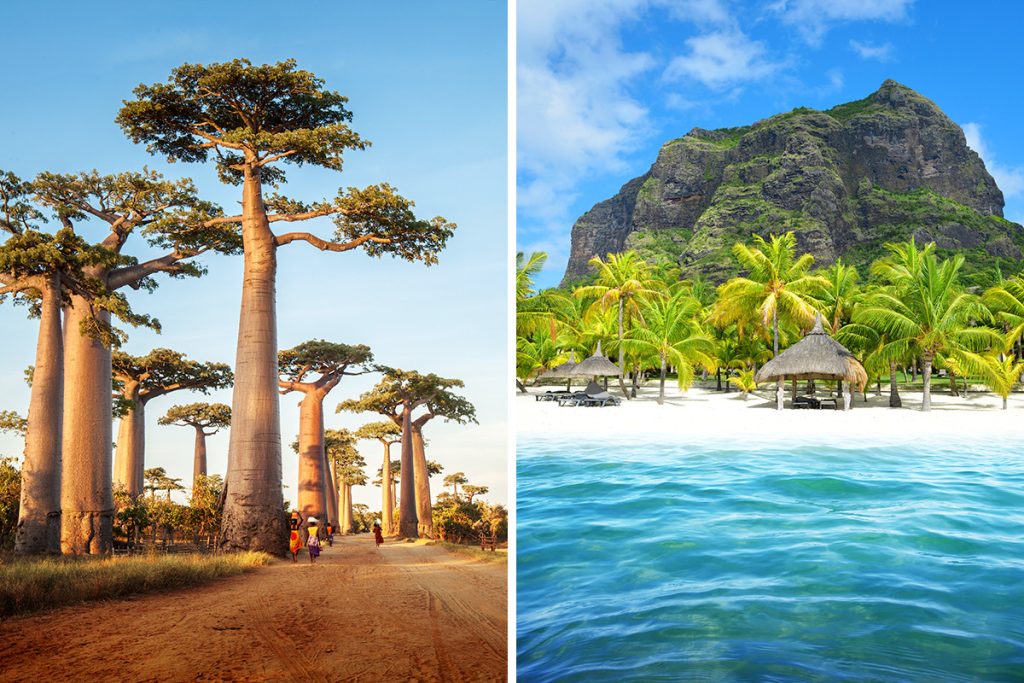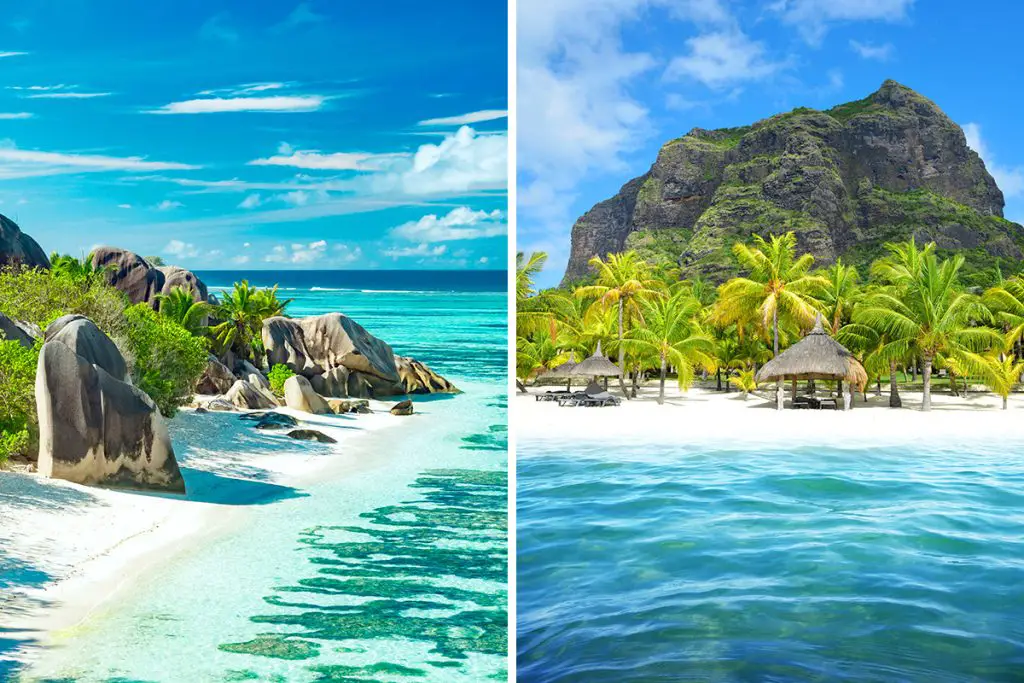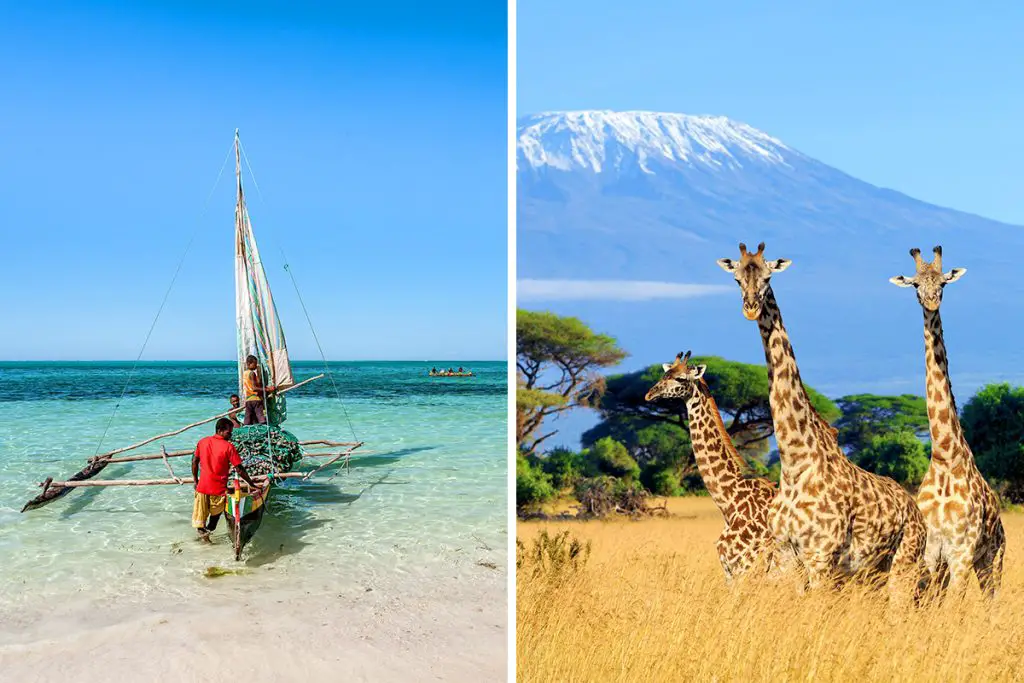Surely, the allure of exploring either Mauritius or Mozambique is tempting enough to make you pack your bags right now. Their histories, full of dramatic events and diverse cultural influences, create a compelling backdrop for an unforgettable trip. Are you ready to delve deeper and uncover the secrets of these two fascinating countries?
History & Culture
Both Mauritius and Mozambique are rich tapestries of history and culture, each with their unique threads and patterns. But what makes them different, and which might appeal more to your historical or cultural curiosities?
Mauritius, a small island nation in the Indian Ocean, has a complex history filled with the influences of European colonial powers. Over the centuries, the Dutch, French, and British have all left their marks here. Today, this creates a cultural melting pot that’s expressed in the languages spoken (Creole, French, and English), the architecture, and the traditions of its people.
Contrastingly, Mozambique, located on the southeastern coast of Africa, also showcases a mix of cultural influences, but with different key players. The Portuguese, who colonized Mozambique for over 400 years, have deeply influenced the local culture. Arabic and African cultures also play a significant part, giving Mozambique a unique feel that’s distinctly its own.
While Mauritius’s history might be best represented by the Dodo bird, an extinct creature symbolizing the impact of human colonization, Mozambique is a story of resilience and adaptation. From colonial times to the recent struggles for independence and peace, Mozambique’s history is reflected in the spirit of its people.
So, Mauritius offers a cultural melting pot resulting from a carousel of European colonial powers, while Mozambique provides a distinct blend of Portuguese, Arabic, and African influences. It’s like choosing between a symphony with a varied but harmonious array of instruments (Mauritius) or a powerful song that carries the strength of a resilient spirit (Mozambique).
In essence, if you’re captivated by the idea of exploring a complex tapestry of European influences in a tropical setting, Mauritius may be your best choice. But if the blend of Portuguese, Arabic, and African cultures set against the backdrop of a country marked by resilience excites you, then Mozambique could be your ideal destination. Either way, both Mauritius and Mozambique offer enriching historical and cultural experiences that can add remarkable depth to your journey.
Attractions & Activities
When it comes to attractions and activities, both Mauritius and Mozambique promise a plethora of engaging experiences. Uncovering the unique offerings in each of these captivating destinations can be an adventure in itself. So, what makes Mauritius stand apart from Mozambique and vice versa? Let’s dive in!
In Mauritius, your adventures can lead you to an exploration of the historical landmarks. The UNESCO World Heritage site, Aapravasi Ghat, is a must-visit. Here, you can witness the remnants of the immigration depot, which speaks volumes about the island’s history of indentured labor.
Additionally, the Le Morne Brabant, another UNESCO site, is a majestic mountain that’s rich in historical significance and offers challenging hiking trails for adventure enthusiasts.
Meanwhile, the city of Port Louis, Mauritius’ capital, can be your go-to for a cultural deep-dive. Its central market, historic buildings like the Government House, and the Blue Penny Museum offer an authentic Mauritian experience. For nature lovers, the Black River Gorges National Park provides an opportunity to witness the island’s lush biodiversity.
Shifting focus to Mozambique, the attractions are strikingly different yet equally engaging. The Niassa Reserve, roughly twice the size of the Kruger National Park in South Africa, is one of Africa’s largest protected areas. It’s a haven for wildlife and hosts a wide range of species, including the African elephant, lion, and the endangered African wild dog.
Similarly, Gorongosa National Park offers a unique safari experience, where you can witness a restoration project helping to reestablish wildlife populations. In the capital, Maputo, the Iron House (Casa do Ferro) designed by Gustave Eiffel, the Maputo Railway Station, and the Natural History Museum present a slice of the city’s architectural and historical essence.
In summary, both Mauritius and Mozambique offer varied attractions and activities. While Mauritius thrills with its historical landmarks, fascinating museums, and natural parks, Mozambique entices with its wildlife reserves and iconic city landmarks. Each destination is sure to fulfill your quest for exploration and adventure.
Beaches
The allure of azure waters and soft sands is undeniable, and when it comes to beaches, Mauritius and Mozambique are hard to beat. Each offers a distinct beach experience, and comparing them can be as refreshing as a dip in the ocean.
Mauritius, renowned for its idyllic beaches, is a paradise for beachgoers. Its pristine coastline stretches for about 330 kilometers (approximately 205 miles). The Belle Mare Beach, located on the east coast, is known for its powder-white sands and tranquil turquoise waters. Its serene ambiance makes it perfect for a quiet beach day.
Then, there’s the Flic-en-Flac beach on the west coast. It’s popular for its breathtaking sunsets and is an excellent spot for snorkeling. Furthermore, the northern beach of Trou aux Biches, with its calm waters and vibrant marine life, offers excellent opportunities for underwater exploration.
In contrast, Mozambique boasts an extensive coastline of approximately 2,470 kilometers (around 1,535 miles). Its southern beaches, like Ponta do Ouro, are famous for dolphin watching and surfing. The crystal clear waters and golden sands create an idyllic setting for beach lovers.
Further north, you’ll find the Quirimbas Archipelago, a string of coral islands offering untouched beaches. The remote location of these islands guarantees uncrowded beach time, making them perfect for those seeking solitude and tranquility.
In a nutshell, if you’re looking for picturesque, tranquil beaches with excellent opportunities for water sports, Mauritius might be your preferred choice. However, if your heart yearns for vast, unspoiled beaches with opportunities for wildlife encounters, then Mozambique’s coastline could be your ideal choice. It’s all about your preference for the kind of beach experience you seek.
Eating, Drinking & Nightlife
The pleasures of eating, drinking, and nightlife experiences can be as enchanting as the destinations themselves. Both Mauritius and Mozambique offer culinary journeys and entertaining nights that make them unforgettable. Let’s compare these exciting aspects of both countries.
In Mauritius, you’ll find a unique blend of cuisines that reflect the island’s multicultural heritage. Street food like dhal puri, a thin, flatbread filled with ground yellow split peas, and gateau piment, spicy split-pea cakes, are must-tries. For seafood lovers, offerings like octopus curry or grilled fish are a delight.
The island is also famous for its sugarcane juice, a refreshing drink that’s as sweet as the smiles of the locals.
In contrast, Mozambique offers culinary delights influenced by Portuguese, Arabic, and Indian flavors. Piri piri chicken, Matapa (a seafood dish with cassava leaves, garlic, and coconut milk), and Paõ (Portuguese bread) are signature dishes. For a unique drink, try Tipo Tinto, a local rum, often mixed with raspberry soda for a cocktail called ‘R&R.’
When it comes to nightlife, Mauritius presents a lively scene with beach clubs, discos, and bars, particularly in Grand Baie and Flic en Flac. You can groove to Sega tunes, the traditional Mauritian music, or enjoy a laid-back evening at a beachfront bar.
On the other hand, Mozambique’s nightlife is centered around Maputo, the capital city. From classy wine bars and live music venues playing Marrabenta (local music genre), to energetic dance clubs, Maputo keeps the party going till the early hours.
In summary, if you’re a foodie seeking to indulge in diverse cuisines and enjoy vibrant beachside nightlife, Mauritius may serve you well. However, if you’re eager to taste the fusion of Portuguese and African flavors and experience the dynamic nightlife of a bustling city, Mozambique could be your choice.
Shopping
Shopping can be an exciting part of your travel experience, offering a chance to take a piece of your holiday back home. Let’s discover what Mauritius and Mozambique have to offer in this respect.
Mauritius is a shopper’s delight. The Central Market in Port Louis is the perfect place to haggle for spices, local handicrafts, and textiles. The island is also known for its model ships, with the Historic Marine in Goodlands being a popular choice for these intricate creations. For high-end fashion, jewelry, and local brands, the Bagatelle Mall and Caudan Waterfront are excellent stops.
Mozambique, on the other hand, offers a different shopping experience.
The FEIMA (Feira de Artesanato, Flores e Gastronomica) in Maputo is a craft market where you can find handmade ceramics, wood carvings, paintings, and textiles. Makonde carvings, known for their intricate detail and cultural significance, make great souvenirs. For locally produced cashew nuts, head to the markets of Inhambane.
To sum it up, if you’re interested in a diverse shopping experience ranging from local markets to modern malls, Mauritius might be your pick. But if you’re after unique handcrafted items and local produce, Mozambique might be the more intriguing option. Either way, you’re sure to find something special to remind you of your amazing journey.
Accommodation
Choosing the perfect place to stay can shape your travel experience, whether in Mauritius or Mozambique. These countries offer a range of accommodations to suit different preferences. Let’s delve into the options each offers.
Mauritius provides a wide range of accommodations from luxury resorts to budget-friendly guesthouses. High-end resorts, such as the One&Only Le Saint Géran and The Oberoi Beach Resort, offer beachfront villas, world-class amenities, and personalized services.
If you’re on a budget, you’ll find plenty of affordable guesthouses and self-catering apartments, such as VillaOSoleil Apartments in Grand Baie.
Mozambique, on the other hand, also offers a range of accommodations, but with a focus on eco-friendly options. High-end resorts like the Anantara Bazaruto Island Resort provide luxury in a natural setting.
For budget travelers, there are many guesthouses and backpacker lodges, such as The Base Backpackers in Tofo Beach.
In conclusion, Mauritius offers a blend of luxurious resorts and budget accommodations to suit all travelers, while Mozambique emphasizes eco-friendly accommodations in natural settings. Whichever destination you choose, you’re sure to find a place that fits your comfort and budget.
Family-Friendliness & Children’s Activities
Family vacations are all about creating memories and engaging in fun activities suitable for all ages. Mauritius and Mozambique both offer opportunities for a family-friendly vacation, but their offerings vary.
In Mauritius, many resorts cater to families, offering kid’s clubs, children’s pools, and organized activities. For a day out, you can visit the Mauritius Aquarium or the Casela World of Adventures, which offer interactive encounters with marine life and wildlife, respectively. The SSR Botanical Garden is also a great spot for a leisurely family picnic.
Mozambique, on the other hand, offers family-friendly lodges and resorts with activities like horse riding and kite surfing. The Gorongosa National Park, with its diverse wildlife, can be an exciting place for a family safari. The National Art Museum in Maputo also provides a cultural outing suitable for the whole family.
To summarize, Mauritius, with its family-centric resorts and variety of activities, may be more convenient for families with children. However, for families seeking adventure and a closer encounter with nature, Mozambique can be an exciting option.
Getting There & Getting Around
Reaching your dream destination and navigating around once you’re there is an integral part of the travel experience. Let’s explore how to get to and around Mauritius and Mozambique.
Mauritius, located approximately 2,000 kilometers (or around 1,242 miles) off the southeast coast of Africa, is well connected by air. The country’s main gateway is Sir Seewoosagur Ramgoolam International Airport, with frequent flights from Europe, Asia, and Africa.
Mozambique is also accessible via air with Maputo International Airport being the primary entrance. The country has direct flights from select African and European countries.
When it comes to getting around, Mauritius offers a good network of public buses, taxis, and car rental services. The island’s relatively small size (about 45 kilometers wide and 65 kilometers long, or roughly 28 miles wide and 40 miles long) makes it easy to explore.
In Mozambique, public transportation includes chapas (minibusses) and taxis. For more freedom and comfort, car rentals are available, although it’s important to note that Mozambique is a vast country, making distances between attractions larger.
In a nutshell, getting to and from Mauritius and Mozambique is straightforward with international flights. Mauritius offers convenient options for internal travel due to its smaller size, while in Mozambique, although travel distances might be greater, the adventure of the journey can be a part of the overall experience.
Weather
One of the key factors when choosing your vacation destination is the weather. Both Mauritius and Mozambique have a tropical climate, but their weather patterns vary throughout the year. Let’s compare the climate of these two destinations.
Mauritius has a warm tropical climate year-round. The summer months, from November to April, are hot and humid, with average temperatures ranging from 77°F to 86°F (25°C to 30°C). The winter, from June to September, is cooler and drier, with temperatures from 64°F to 77°F (18°C to 25°C). The wettest months are February and March.
Mozambique also has a tropical climate, but it’s more varied. The country experiences a hot and rainy season from November to April, with temperatures between 77°F and 86°F (25°C to 30°C). The dry season, from May to October, sees cooler temperatures ranging from 60°F to 75°F (15°C to 24°C). The central and northern regions experience more rainfall than the south.
In summary, both Mauritius and Mozambique offer warm tropical weather, but their rainy seasons differ slightly. So depending on your preference for a wet or dry holiday, you can plan your visit accordingly.
Safety
Safety is paramount when considering a travel destination. Let’s compare the safety situation in Mauritius and Mozambique.
Mauritius is generally safe for tourists. Crime rates are relatively low, especially in tourist areas. However, like anywhere else, minor crimes such as pickpocketing can occur, so always keep an eye on your belongings.
Mozambique’s safety varies by region. Major cities and tourist areas are generally safe, but some remote areas may pose risks due to political unrest. Like Mauritius, petty crime exists, but sensible precautions can mitigate these risks.
Beyond crime, health and wildlife safety are also important. Mauritius, being a well-developed island nation, has good healthcare facilities. Mozambique, on the other hand, requires caution due to malaria risk and wildlife encounters in remote areas.
In conclusion, both Mauritius and Mozambique offer a generally safe environment for tourists, with necessary precautions. Consider health and wildlife safety in your planning, especially if you choose Mozambique.
Cost
Travel costs can greatly influence your holiday experience. Mauritius and Mozambique offer different price points, impacting your daily spending on food, lodging, and transportation.
In Mauritius, you can expect to pay around 200 Mauritian Rupees (about 4.4 USD) for a local meal. Hotel prices vary widely, with luxury resorts charging up to 20,000 Mauritian Rupees (around 440 USD) per night, while budget accommodations can be as low as 1,000 Rupees (22 USD).
For transportation, taxis and public buses are affordable, with a short taxi ride costing around 150 Rupees (3.3 USD).
In Mozambique, a local meal may cost around 200 Mozambican Meticals (about 3.1 USD). Lodging costs can range from 3,500 Meticals (approximately 55 USD) for a budget room to over 17,500 Meticals (275 USD) for luxury resorts.
As for transportation, chapas (minibusses) are a cost-effective way to travel, costing about 50 Meticals (0.8 USD) for a short journey.
To wrap up, Mauritius and Mozambique cater to different budgets. While Mauritius offers more high-end options, Mozambique provides a more economical travel experience. Your choice will depend on your budget and what you value in a vacation.
Which Is Better – Mauritius or Mozambique?
Making a choice between Mauritius and Mozambique can be quite a task, given the distinct flavors each offers to its visitors. Based on the comparisons drawn from the various aspects of travel, let’s help you make an informed decision.
In terms of history and culture, Mauritius has a rich blend of various influences making it a melting pot of traditions, while Mozambique’s Portuguese history and African heritage provide a unique cultural perspective. If you prefer a more diverse cultural environment, Mauritius is the way to go. For a distinct Afro-Portuguese cultural experience, choose Mozambique.
When it comes to attractions and activities, both countries offer a plethora of options. However, Mauritius tends to offer more variety and high-end resorts, while Mozambique is famed for its natural parks and outdoor adventures. If luxury and variety are what you seek, Mauritius should be your pick. But for an adventure-filled vacation, Mozambique is your destination.
The beaches in both Mauritius and Mozambique are nothing short of spectacular. Mauritius, however, is better suited for those seeking resort-style luxury, while Mozambique’s coastline is a paradise for beach lovers who enjoy off-beaten paths.
Eating, drinking, and nightlife differ greatly between the two. Mauritius boasts a vibrant mix of cuisines while Mozambique’s seafood is unparalleled. For foodies who want a mix of flavors, Mauritius should be your choice. But for seafood lovers, Mozambique will not disappoint.
When shopping is concerned, Mauritius offers a wider range of options, from local markets to luxury boutiques. On the other hand, Mozambique offers a unique local shopping experience. If a variety of shopping experiences excites you, Mauritius is your destination. For a more local shopping adventure, head to Mozambique.
In terms of accommodation, both cater to a wide range of budgets. Mauritius, however, has a wider range of luxury resorts. Mozambique, on the other hand, offers a more rustic and authentic stay experience. Choose Mauritius for a more lavish stay and Mozambique for a more authentic experience.
Both Mauritius and Mozambique have their unique offerings, making them both fantastic choices for different reasons. It ultimately boils down to your personal preferences, travel desires, and expectations. Whether it’s the cultural diversity of Mauritius or the raw beauty of Mozambique, both will surely give you a holiday to remember.

